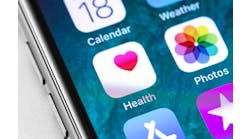I'm all for self-service, especially when it adds efficiency. That's one reason I've always thought self-check-ins at doctors' offices and clinics would be a great time saver.
I'm sick up to my eyeballs of writing in basic information for the umpteenth time. If I have to do it (and I question whether all of it is really necessary), let me enter it on a keyboard, which should be faster than the ubiquitous brown clipboard with pen.
Now I'm a kiosk fan. Kiosks at train stations, airports, and banks are speedy and efficient. I use them. But self-service kiosks in healthcare settings are another story. Every one I've experienced so far has left me less than impressed.
I go to a pharmacy-based clinic for my annual flu shot. Check-in via kiosk there is downright painful on a hunt-and-peck touch screen at a height that has been optimized for a midget. (I'm short, but not short enough.)
Another recent check-in experience had a family member type in his name. The system was finicky--no caps, please; watch the spacing--so finicky that after two failed attempts, the desk person finally did data entry. Needless to say, I was mightily unimpressed with the technology improvement.
Neither system accepted anything more than name and demographic information to ensure that I was who I said I was. No request for my insurance information or scanner for my insurance card. No way to pay my co-pay.
The concept of self-service for check-ins clearly offers promise, but if execution is no better than my recent experiences, we're still in a technology zone stuck on potential.
Sponsored Recommendations
Sponsored Recommendations

